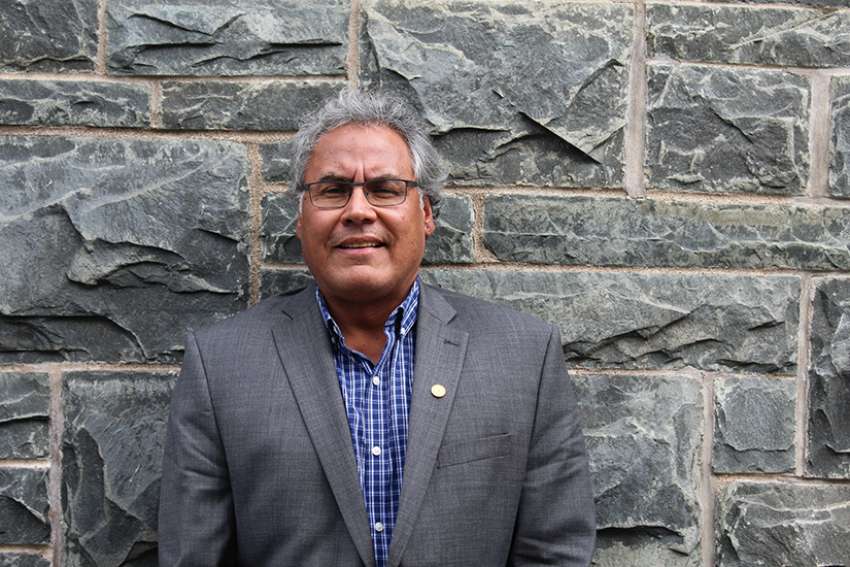“One of the first things I noticed in my first week is how inclusive this campus is,” said Small Legs-Nagge, who last month began his new job as special advisor to the president on aboriginal affairs.
Courtesy of Mount Saint Vincent University
Aboriginal advisor a first for university
By Jean Ko Din, The Catholic Register
It didn’t take long for Patrick Small Legs-Nagge to pick up on the culture of Mount Saint Vincent University in Halifax, N.S.
“One of the first things I noticed in my first week is how inclusive this campus is,” said Small Legs-Nagge, who last month began his new job as special advisor to the president on aboriginal affairs.
“One of the first things I noticed in my first week is how inclusive this campus is,” said Small Legs-Nagge, who last month began his new job as special advisor to the president on aboriginal affairs.
He’s the first person to fill this position at the university. That fact alone signals the university’s desire to take the next steps in bringing reconciliation to the forefront, he said.
“I think the president is at the point now where she’s ready to listen to the community’s needs, be in tune where they’re at, getting to know them better and just having more community involvement.”
Reporting directly to president and vice-chancellor Mary Bluechardt, he plays an important part in supporting aboriginal students on campus, as well as providing strategic advice and policy direction.
“This new role reflects the Mount’s commitment to ensuring a strategic focus at the highest level on programs and policy that are supportive of aboriginal student learners,” said Bluechardt in a statement.
Small Legs-Nagge is a member of the Piikani First Nation in Alberta. He also brings extensive policy experience in the government sector. Most recently, he worked with Health Canada as director of Mental Wellness, First Nation and Inuit Health.
The university has many initiatives that bring a culture of acceptance and awareness, said Small Legs-Nagge. He said the university’s Aboriginal Student Centre, which opened in 2013, is a perfect example. It is a place where the school’s 162 aboriginal students (from a student population of about 2,400) can study and lounge. It’s also a place where regular smudging ceremonies and other traditional rituals can take place.
Most recently, the Mount became the first Nova Scotia university to raise a wikuom (the Mi’kmaq word for wigwam) on campus. The wikuom will stay on campus until November.
He said “indigenizing” the campus community with programs and activities is much easier to talk about, but decolonizing the campus culture is also an important part of the process.
“Decolonizing is working with those biases that people have,” he said. “I think we’re at a critical point, a good point where Canadians want to know about this because of all that has come out in the last few years.”
As special advisor, he provides support to faculty, staff and students in meeting the university’s commitment to reconciliation. He also works with the university’s internal and external Aboriginal Advisory Committees to facilitate relationships with aboriginal communities around campus.
Please support The Catholic Register
Unlike many media companies, The Catholic Register has never charged readers for access to the news and information on our website. We want to keep our award-winning journalism as widely available as possible. But we need your help.
For more than 125 years, The Register has been a trusted source of faith-based journalism. By making even a small donation you help ensure our future as an important voice in the Catholic Church. If you support the mission of Catholic journalism, please donate today. Thank you.
DONATE

